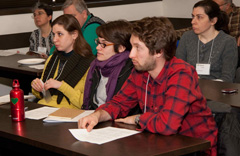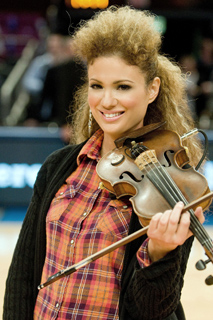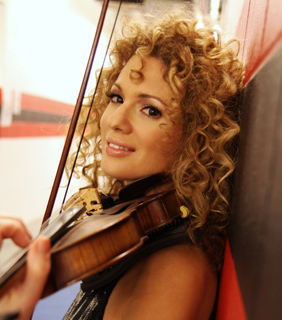Jewish Chicagoans to share daylong celebration of Jewish learning
Permanent link
Imagine a room filled with hundreds of Jews, all from different backgrounds, perspectives, denominations and generations, learning together. If you can picture yourself in that room, you should be sure to check out Limmud Chicago 2012.
Limmud is the Hebrew word for "learning" and Limmud Chicago is part of an international, volunteer-run movement which began in England in 1980 and has been replicated in over 50 cities throughout the world. According to a recent study by Steven M. Cohen and Ezra Kopelowitz, Limmud has grown from a UK movement reaching 80 participants per year, to an international movement reaching over 30,000 individuals annually.
Anita Silvert, co-chair of this year's Limmud Chicago 2012 with Shoshana Waskow, was asked to present at Limmud UK years ago and then got involved with bringing the program to Chicago. The third Limmud Chicago, taking place Sunday, Feb. 19 at the University of Illinois Chicago UIC Student Center East, will feature 100 learning sessions, with themes of sustainability and diversity running throughout the day.
This daylong celebration of Jewish learning and culture is filled with lectures, discussion groups, workshops, films, exhibits and performances on a variety of Jewish topics including Jewish body art, Jewish organic farming, Israel's social justice movement, Hebrew feminist poets, Jews and food, Perspectives from the 2010 Jewish Population Study conducted by JUF/JF and more. Presenters range from Jewish professionals to educators to clergy to passionate members of the community.
This year, there is a special emphasis on engaging young Jewish adults. "We paid a lot of attention to the surveys that we got back from the past two years of Limmud Chicago," Silvert said, "...and one of the things that came through loud and clear was we weren't representative across the entire age spectrum and we needed to break more into that young adult demographic."
So they moved the conference into the city this year, and—thanks to generous funding provided by the Jewish Federation of Metropolitan Chicago and NEXT: A Division of the Birthright Israel Foundation—developed the Young Adult Initiative, a subsidy to provide significantly reduced registration fees for young adults aged 18 to 30.
"Limmud is perfect for this outreach because Limmud is who shows up," Silvert said. "Limmud itself doesn't have a bent or a slant or an agenda at all, but there's an aspect of Jewish engagement that is really interesting to anybody…It's not anybody's agenda, it's not anybody's denomination—it is completely beyond that kind of scope—so it's perfect for people who are truly figuring out who they want to be as Jewish adults."
Limmud participants can elect to "volunticipate." Empowering the community to build the kind of thing they want to build, "Limmud empowers people to develop their own Jewish identity and to go forward with it on their own terms," Silvert said.
Barry Krost, Limmud Chicago 2012 Program Team Co-Chair, first learned about Limmud from a friend who was one of the founders of Limmud Chicago. At the time, he was not involved in Jewish life, but found his place in Limmud. "Limmud's been a really amazing opportunity for me, a really positive Jewish experience, and I feel like I have a seat at the table as somewhat of a secular Jew," Krost said. "Limmud is a place where I'm welcomed in."
For him, the best part about Limmud is getting together people of so many backgrounds into one room, where everyone is referred to only by their first name. "It's really an opportunity to get Jews to step out of their normal boundaries and interact with other Jews that might live in a different world normally," he said. "Limmud is all about mutual respect…The encounter with other Jews gives [participants] a stronger sense of what it means to be a Jew."
Limmud Chicago will host its third conference on Sunday, Feb. 19 at the University of Illinois Chicago UIC Student Center East at 750 S. Halsted. An evening program with entertainment will also be presented. Reduced rates are available for young adults at www.limmudchicago.org.






.jpg)


.jpg)



